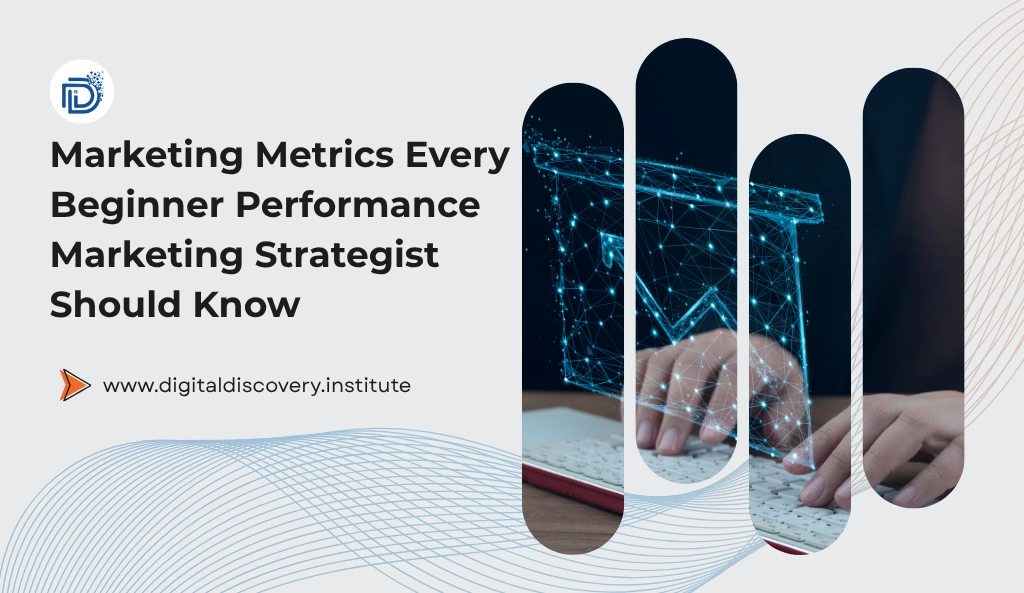Introduction
So, what is Performance Marketing?
Performance marketing is a digital technique of marketing in which the advertiser only pays together with certain types of actions, like clicks, leads, sales, or conversions, instead of paying based on the advertisement impressions or reach. Compared to the conventional brand campaigns, it is based on quantifiable results and ROI, and marketers can track every rupee used and every achievement realized. This strategy combines such strategies as Google Ads, Meta Ads, affiliate marketing, and programmatic advertising, as the campaigns are optimized in accordance with such performance indicators as the CPC, CPA, CTR, and ROAS. In layman terminology, it is a combination of creativity and analytics in the field of performance marketing, which enable companies to spend more efficiently, grow more quickly, and with more noticeable outcomes and benefits.
When you are doing performance marketing, you should know that it is not about clicks and getting impressions. The real question is How good is our marketing? Is our expenditure paying back sufficiently well?
This blog will ensure that you will learn about realistic metrics. Learn performance marketing from Digital Discovery Institute (DDI) Mohali — the Best Digital Marketing Course in Mohali.
Impressions
What are they?
An impression is the time when your advert will appear on the site like Google, Meta, or LinkedIn.
Impressions are an aspect of visibility that is mentioned in TVScientific and GrowthJockey.
Why is it important?
It lets you know that your advertisement is available among the audience members — the first step towards creation of awareness.
Learn Performance Marketing at DDI Mohali
Are you willing to study performance marketing in practice?
Learn the Diploma in Digital Marketing Course at DDI Mohali.
Click-Through Rate (CTR)
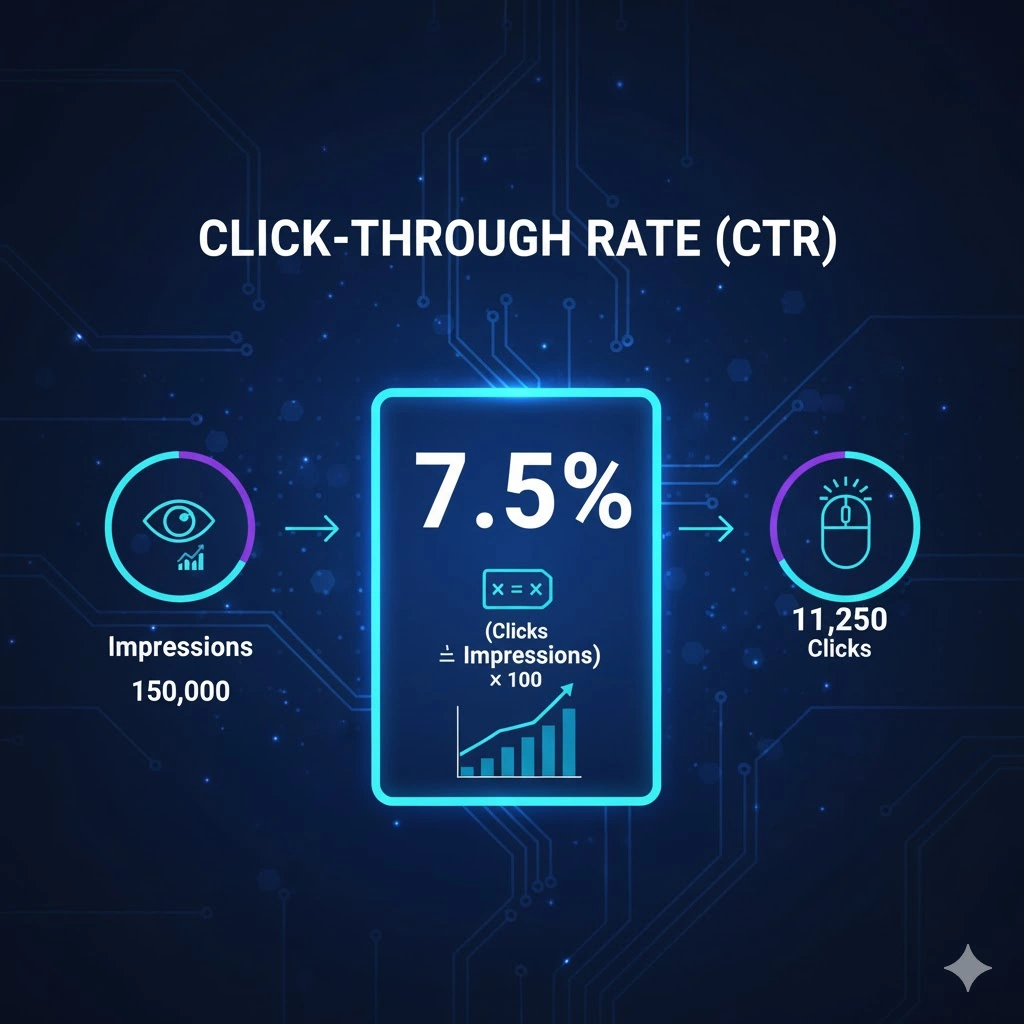
What is it?
CTR = (Clicks ÷ Impressions) × 100.
Why is it important?
It shows the number of times your creative and message on advertisements are clicked on. When the CTR is lower than desirable, something is not working with the ad, or the audience is wrong.
Cost-Per-Click (CPC)
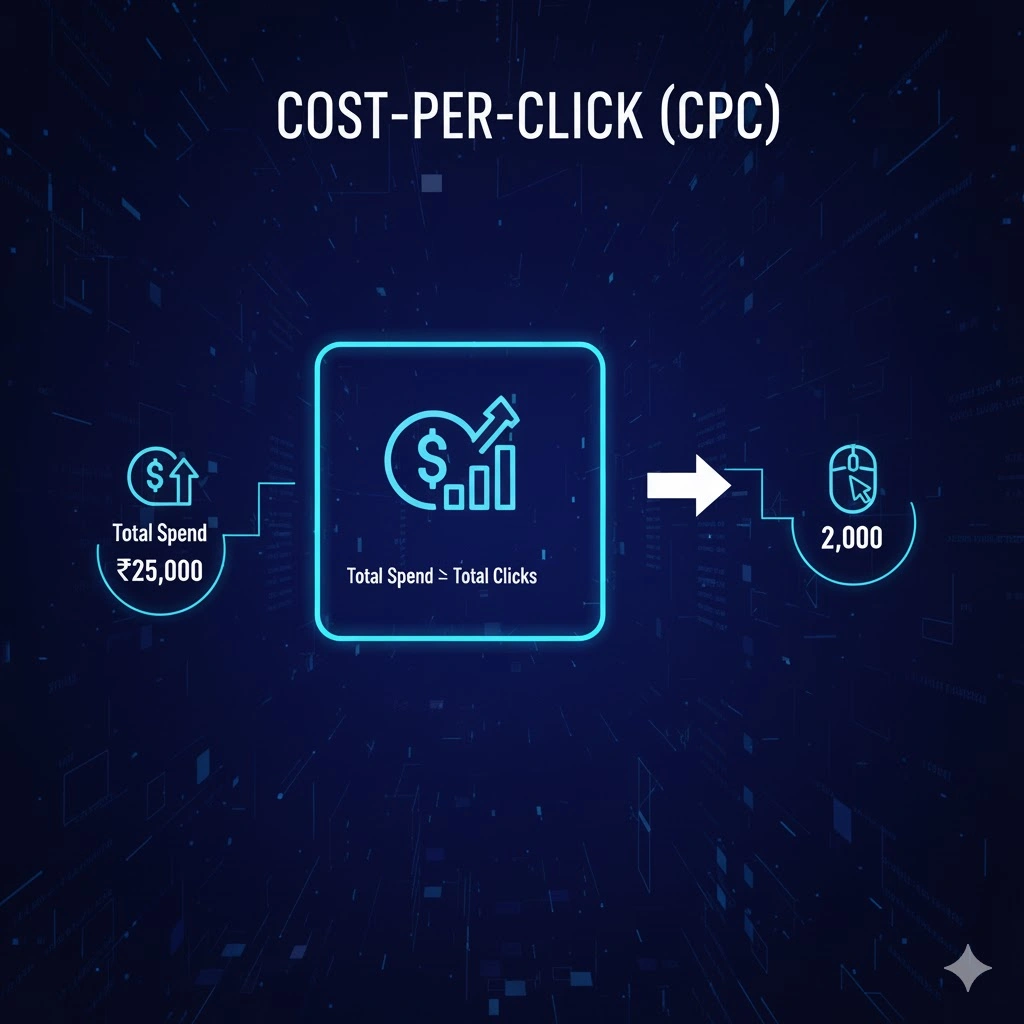
What is it?
Total Spend ÷ Total Clicks = CPC.
Why is it important?
It tells you the cost per visitor or per click — this is essential in knowing the cost of traffic.
Conversion Rate (CVR)
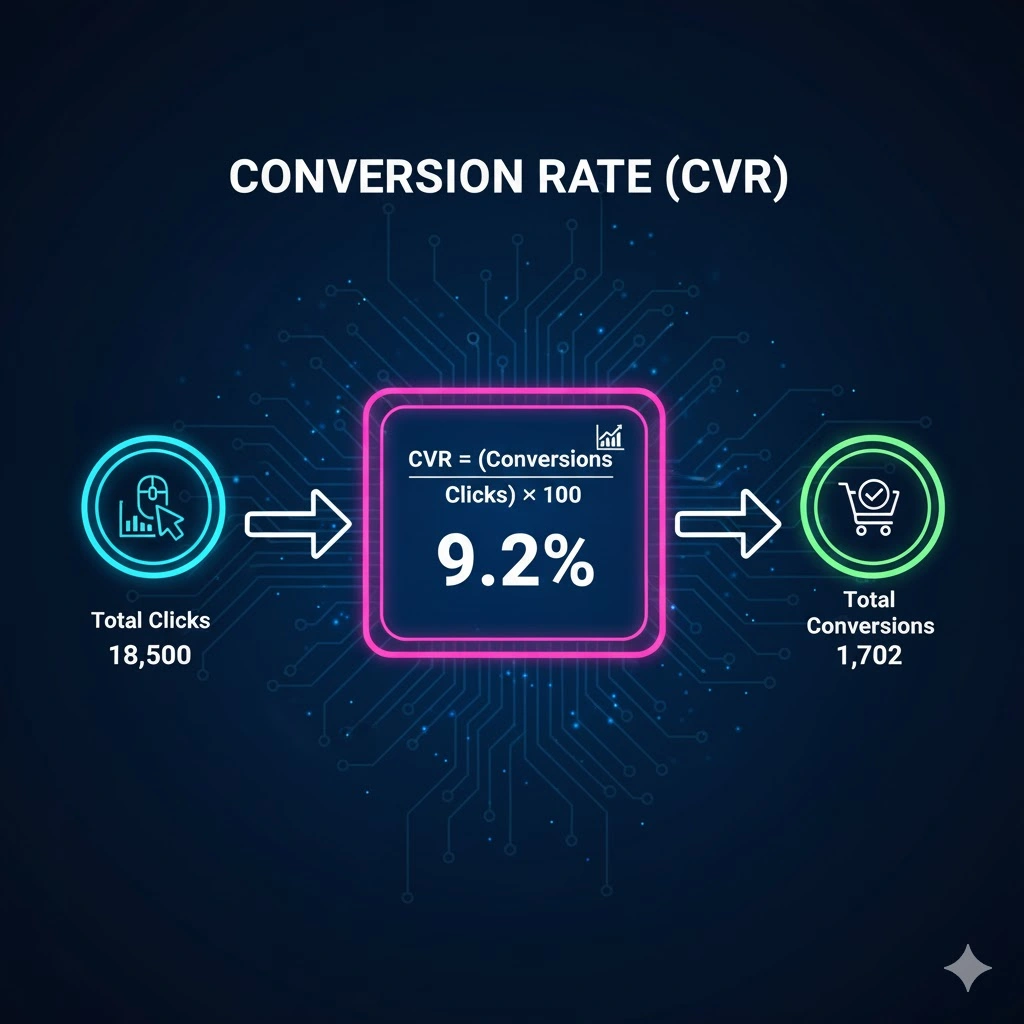
What is it?
CVR = (Conversions ÷ Clicks) × 100.
E.g. 5% CVR of the 200 clicks means that 10 individuals filled out the form.
Why is it important?
When others receive a click and fail to convert (buy, register or sign up), then that is an indication that there is a problem somewhere in the landing page, offer or user experience.
Become a specialist in performance marketing informed by data?
Cost Per Acquisition (CPA)
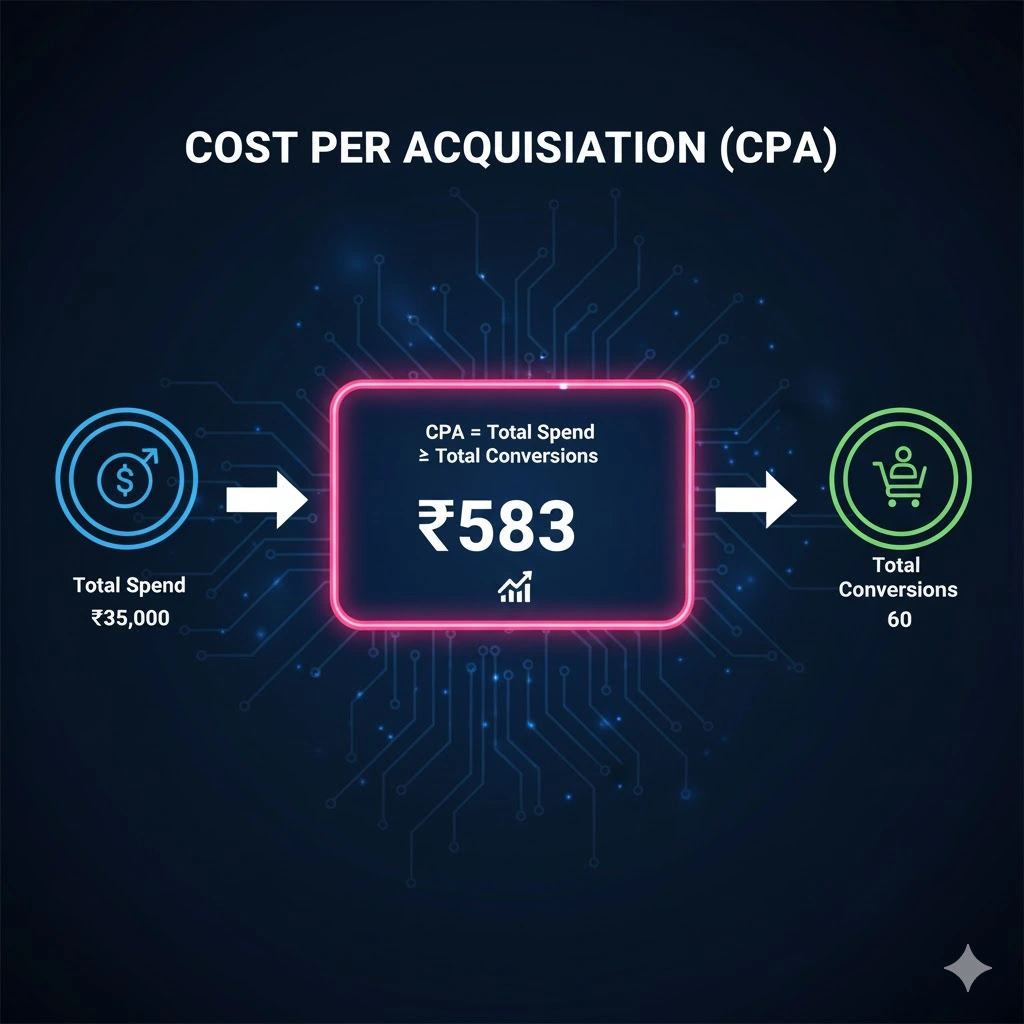
What is it?
CPA = Total Spend/Total Conversions, which are treated as customers.
Why is it important?
It reveals the amount you pay to get a single paying customer or lead, which is important in the profitability analysis.
Return on Ad Spend (ROAS)
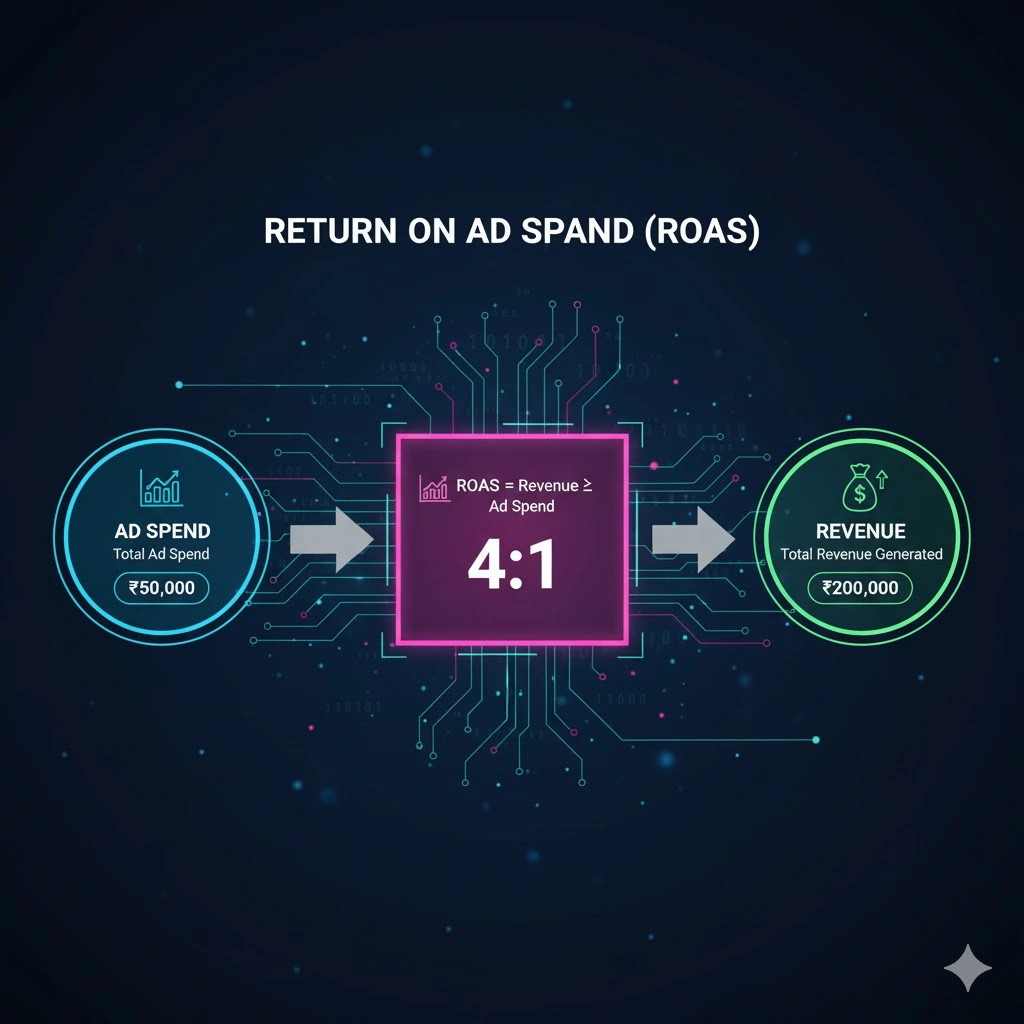
What is it?
ROAS = Revenue ÷ Ad Spend.
Example: 4 revenue / 1 amount spent = ROAS 4:1.
Why is it important?
It brings out directly the payoff of advertising, an evident measure of the worth of the expenditure.
Customer Life Value (LTV)
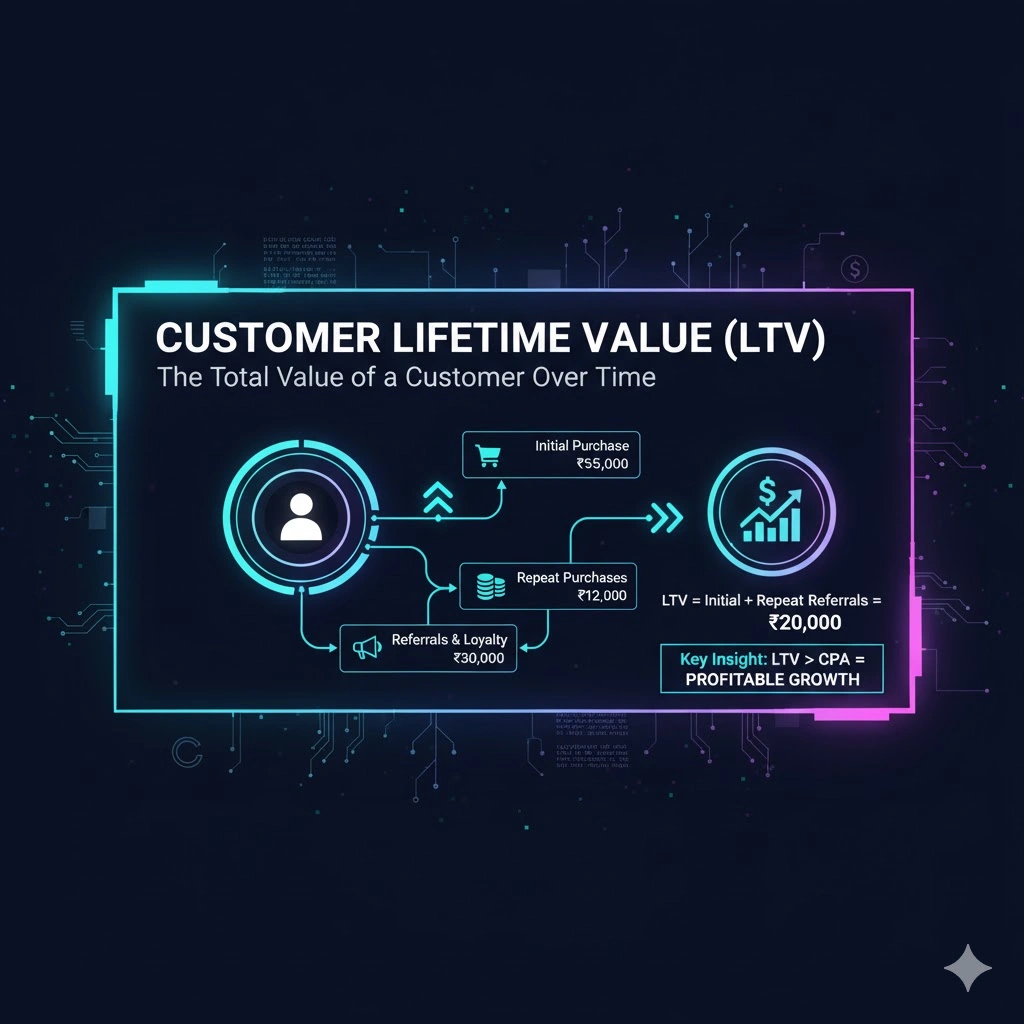
What is it?
LTV demonstrates the territory of the revenue or profit you get on a customer throughout the relationship.
Why is it important?
In case CPA is greater than LTV, of course, this type of business model will not hold. LTV steers acquisition and retention strategy.
Build Your Career with DDI Mohali
Average Order Value (AOV)
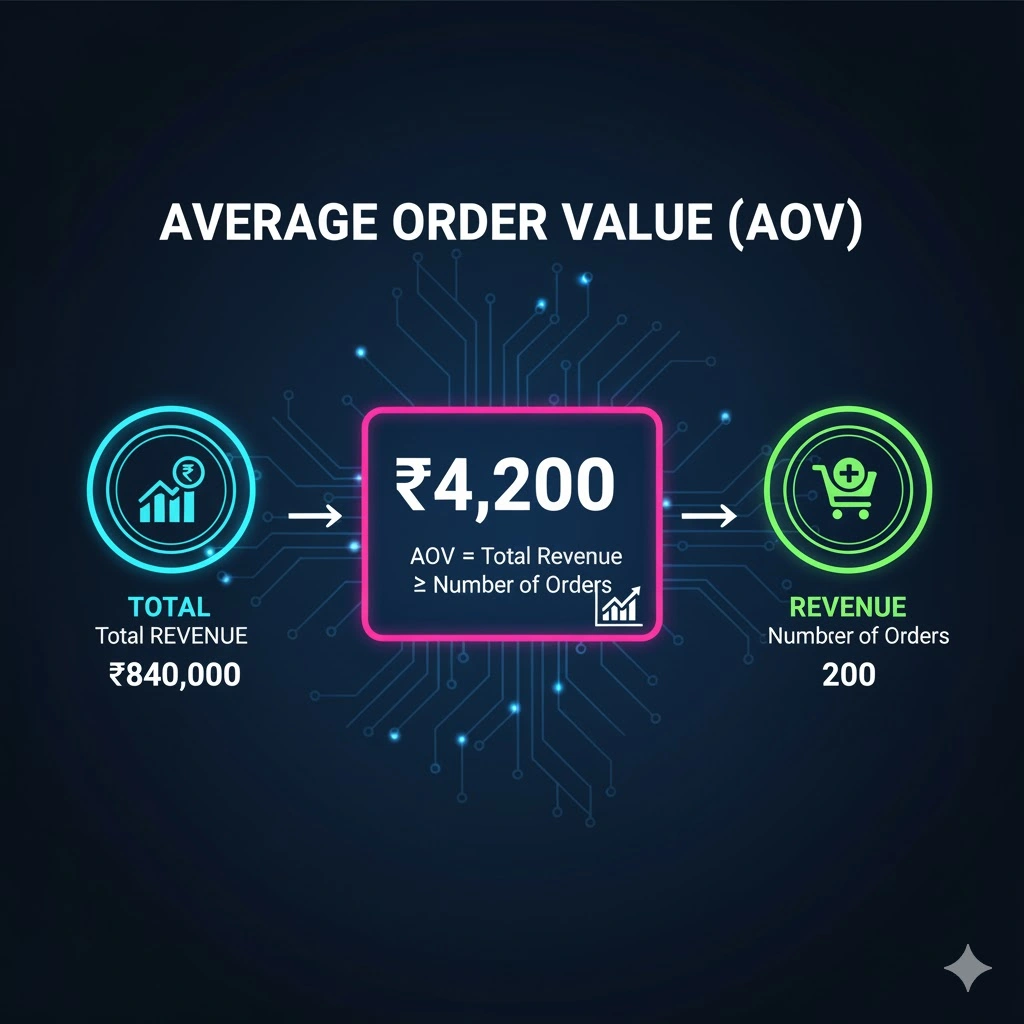
What is it?
AOV = Total Revenue / Number of Orders.
Why is it important?
The more we increase AOV, the more we increase profitability even though CPA may not change because every transaction will earn more.
Retention Rate / Churn Rate
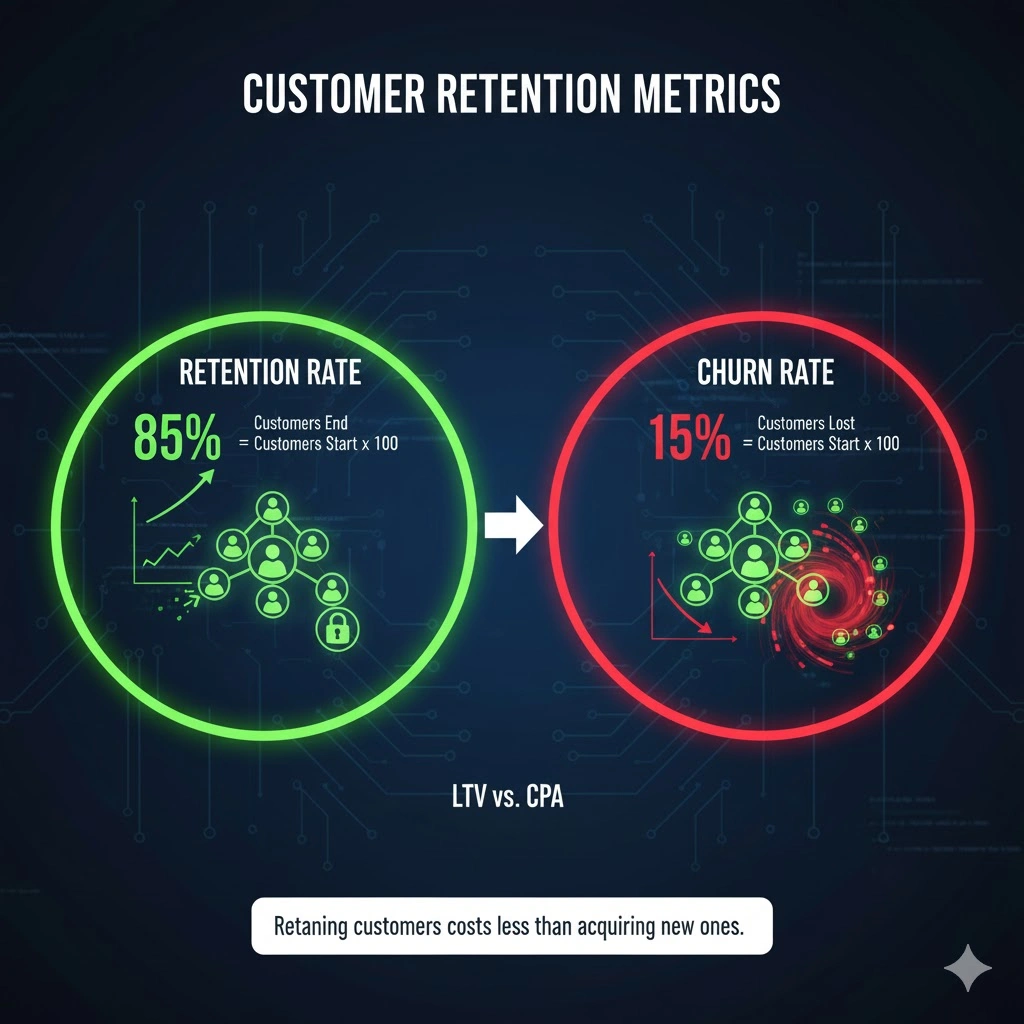
What is it?
Return rate = percentage of returning customers.
Churn rate = rate of customer turnover.
Why is it important?
It is cheaper to retain customers as opposed to acquiring new customers — critical in e-commerce and subscriptions.
Bounce Rate / Average Time on Site
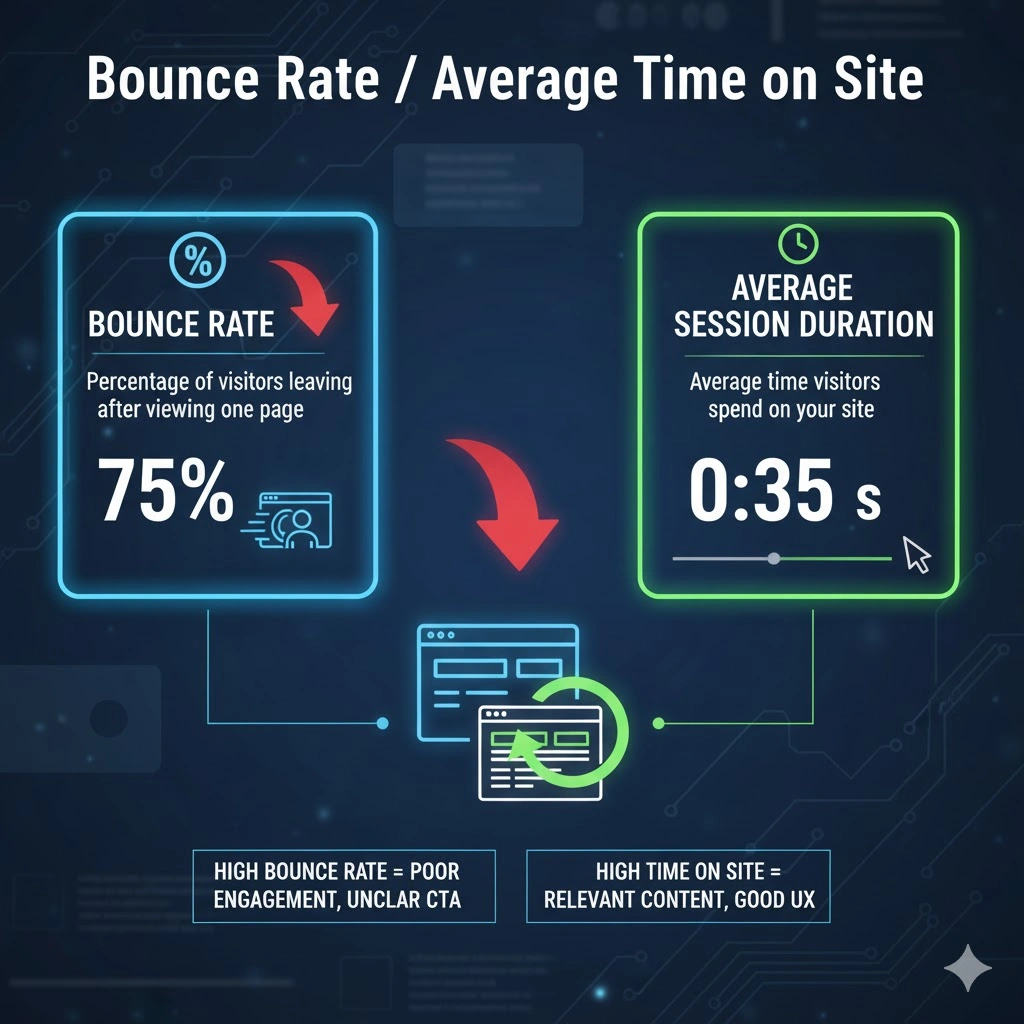
What is it?
Bounce Rate = percentage of visits that go to waste with the attendance of only one page.
Average Session Duration = Average amount of time that visitors spend at your site.
Why is it important?
It shows the activity of your landing page. Low bounce rate = bad content, slowness of speed, or CTA not properly defined.
Book a session in DDI Mohali: Bounce Rate Optimization and Landing Page Audit Session.
Conclusion
These are the top ten performance marketing metrics required to be mastered by every marketer. It is not merely knowing what they are, but how to quantify in measures, understand and maximize them to gain the highest ROI.
Digital Discovery Institute (DDI) Mohali — the Best Digital Marketing Institute in Punjab with highly advanced AI-based digital marketing training and 100% placement assurance — is the answer to achieving a performance marketing career with on-job learning.
FAQs
What are the performance marketing metrics and why are they important?
KPIs such as CTR, CPA and ROAS denote the efficiency of marketing and its cost-effectiveness. In the absence of them, the campaigns are based on guesswork.
How can I increase CTR?
Better ad creatives, focusing, and messaging. Optimize creativity with the help of A/B testing.
CPA - CPC, what set them apart?
CPC = cost in relation to a click (traffic measure). CPA = cost per acquisition (conversion measure).
What’s a good ROAS benchmark?
Typically, it is good at 3:1 and higher.
Why should LTV be tracked?
It displays expected revenue per customer in total, it is the guide to retention, and budgeting strategies.
How to reduce customer churn?
Improve the customer experience, communication and loyalty.
Why is bounce rate high?
Page loading problems, lack of clarity in CTA, irrelevant content.
How can I increase AOV?
Provide packages, upsell or discounts on more valuable orders.
What is the first metric to follow?
CTR and CPC in the beginning at the awareness stage, CPA and ROAS in performance.
How do you teach students metrics? What is a good assignment to do this?
Simulate a campaign to estimate CTR, CPC, CPA and ROAS and make findings.

